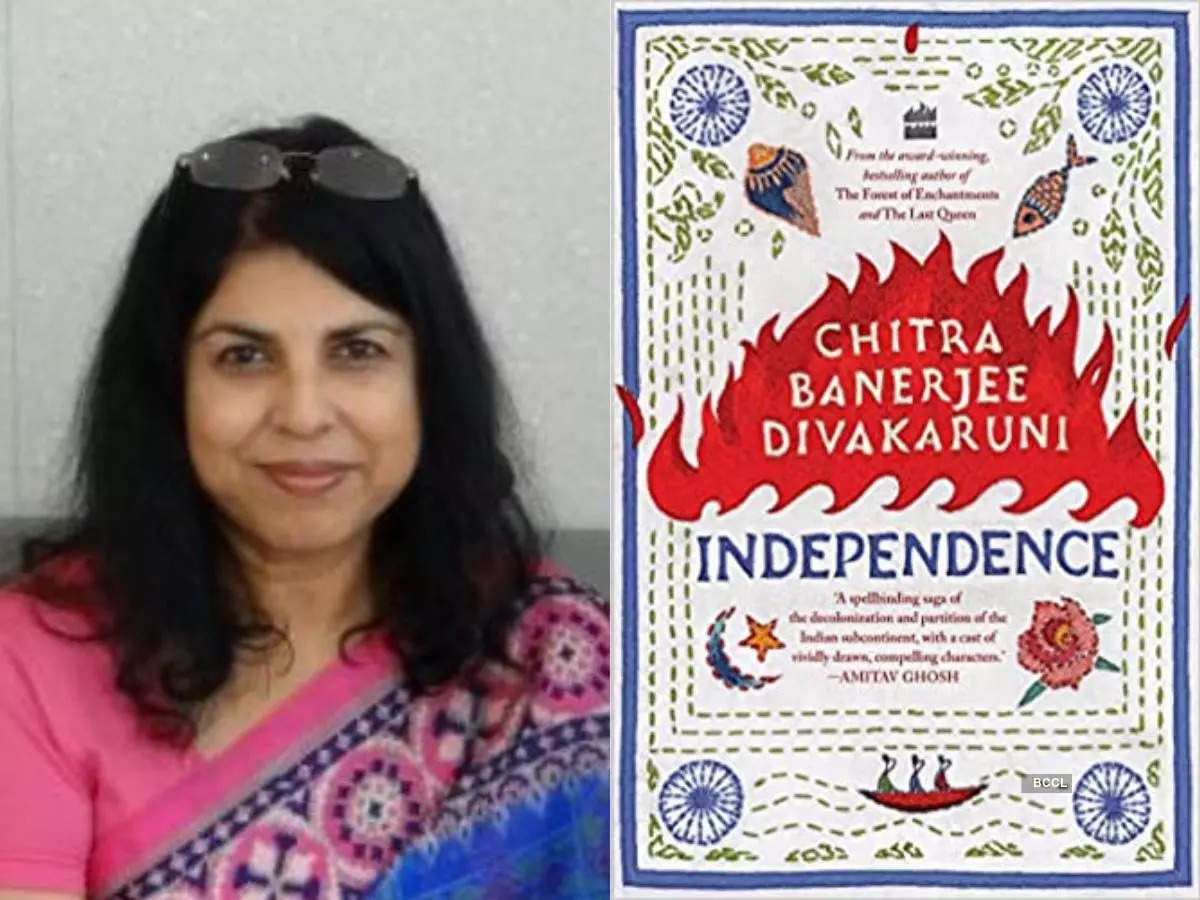
Popular author Chitra Banerjee Divakaruni's latest novel 'Independence' is set during the Partition and it follows the stories of three sisters, whose lives change for good with the birth of the new nation. A bestseller, the book is also Shortlisted for the AutHer Awards 2023 in the Fiction category. In an interview with us, Divakaruni tells us more about the inspiration for writing 'Independence' and the characters, her struggles of being and Indian-American woman author, and more. Excerpts:
1. What inspired you to write 'Independence'? What was the idea behind this story?
My previous novel, 'The Last Queen', gave me the impetus to write this novel. 'The Last Queen' was about Maharani Jindan, youngest wife of Maharajah Ranjit Singh. After his death, she tried her best to save the kingdom of Punjab from the grasp of the British, but due to treachery within her court, she failed. Even though she wins a subtle moral victory in the end, I was unhappy. I needed to trace this movement of history until its end, when India wins her freedom and the British are forced to leave. That led me to write 'Independence'.
2. The novel follows the story of three sisters, and touches on the themes of sisterhood, nationhood, loyalty and love. How did you create the characters and their relationships with each other?
I knew I wanted three sisters— three is a magical, destabilizing and dramatic number, and many Bengali folktales begin with three sisters, each very different from the other. So I knew that my sisters, too, had to be very different, with different dreams. Once I figured out what each one wanted the most, I had the beginning of their tale. Because they wanted such different things, the conflict in the story arose naturally. I knew the story would start just before the Direct Action Day Riots in 1946, which was an important and tragic historical moment in Bengal, and would shake up their world. After that, things just flowed.
3. What challenges did you face while writing 'Independence'?
Research was a challenge. Much more is available, both in fiction and non-fiction, about the Partition on the Punjab border. Not so much has been written about Bengal— except some things in Bangla. So I had to rely heavily on newspaper accounts (many of which were contradictory) and finally, on family stories that had been told to me by my maternal grandfather and my mother. But this turned out to be a blessing in disguise as I could bring in eyewitness accounts and all the powerful emotions that came with them.
4. What message do you want readers to take away from the novel?
I want us to remember how many people of different backgrounds and faiths came together and fought for Independence, and how many died soon afterwards because of the flaring of Hindu-Muslim conflicts during Partition. I want us to appreciate the multicultural richness that makes up India and to treasure the resulting multiplicity of voices. (The songs of Tagore and Nazrul, which play an important part in the book, are symbolic of this.)
5. As an Indian-American woman writer, have you faced any particular challenges?
Yes! In India at first some people would say, 'She doesn’t live here. What qualifies her to write about India?' (I went to the US for graduate studies when I was 20, and though I traveled back and forth, I did not live in India full time.) So I had to make sure my research was authentic.
In the US, the mainstream audience would say, 'How do her stories about India (or Indian Americans) relate to America?' So I had to make sure that the universal human element in my work was strong. The immigrant Indian community would say, 'She’s writing about all our problems, making us look bad'. So I had to talk and write about how we can’t sweep our issues under the rug, that if we don’t address issues like racism and violence toward us, or misogyny and domestic violence towards our women, we’ll never make things better.
6. What do you think are the key ingredients for a successful book?
Character, plot, theme and imagery. The characters have to be multi-dimensional and relatable. The plot has to have conflict and surprise. The theme (as in 'Independence') has to be of deep human significance. And the images have to pull the reader in, so the reader “lives” what the characters are living.
7. And lastly, what is the most rewarding aspect of writing for you?
When a new idea strikes me, that’s the most magical moment. I get very excited and write down notes for hours and hours. A whole world with its inhabitants begins to take shape. After that, it’s all hard work—research, plotting, writing--and re-writing many times!







